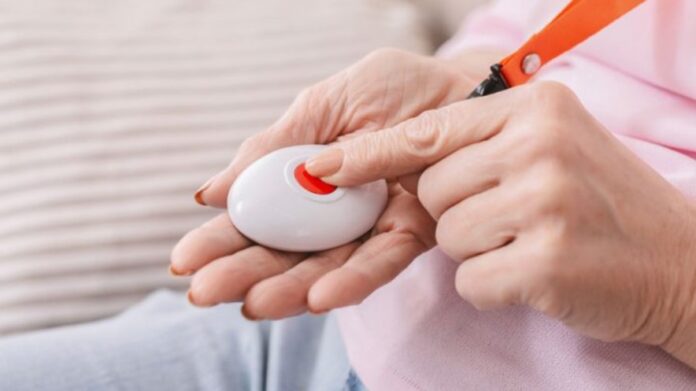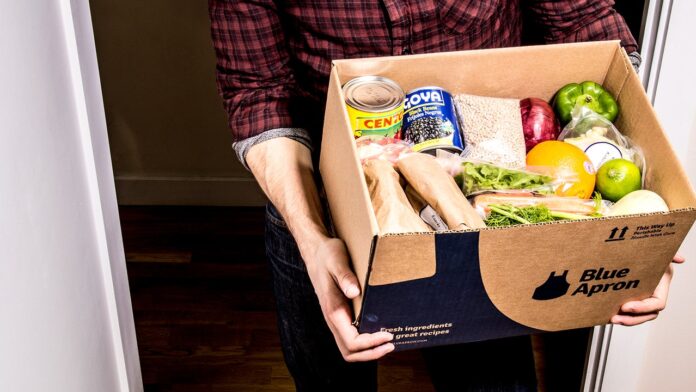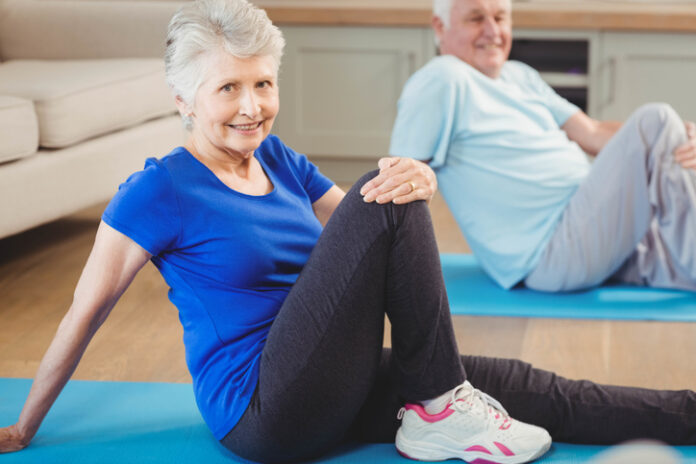
The need for social distancing may cause additional concerns for those with elderly relatives, who may be anxious about their ability to keep their loved ones safe and well during this time. Below are five actionable steps that you can take that will help to both safeguard your relatives, preserve their independence, and give you peace of mind.
1. Install an Emergency Button

Making sure that your relative has access to an emergency or panic button is one of the most effective and practical ways to keep them safe. Choose between wired or wireless versions and, for the greatest peace of mind, opt for a button that can be worn on the person. The idea with this device is that should the user be concerned or suffer a fall or other accident; they can use it to summon help immediately. With falls being a hazard risk for the elderly in their home, a panic button kept on the person means that should an accident such as this occur, there is not the fear that your relative could be subsequently stranded or injured for a significant period without being able to summon assistance or alert anyone to what has happened.
You could also consider installing a medical alert device, which is monitored by and allows access to a team of trained medical and emergency response professionals. Upon installation, these devices can be programmed with personalized care instructions and may come with an optional fall detection feature, too. Have a look here for additional info on one such medical alert device; this particular model can be paired with another app enabling a relative to accurately pinpoint the location of their loved one. It’s water-resistant and has a battery life of approximately sixteen days when fully charged; a member of the emergency response team will answer any calls made using the device within fifteen seconds.
2. Managing Medication

One of the most common accidents in the home is poisoning caused by the maladministration of medicine; this can be a particular risk for those who are elderly and suffering from memory problems. Pill organizer boxes are a good way of helping to prevent this: they feature segregated compartments for each day of the week (and some are divided further into times of day) so that medication can be added for up to a week in advance. It’s important to keep these boxes in plain sight, however, if your loved one is suffering from memory loss.
Pill boxes that are pocket-sized and vibrate when medication is due to be taken are also available, which are suitable for those who need to only take a few tablets a day.
You could also install a pill reminder app for your relative on their smartphone or another device; a timer can be set every time medication is due, which can be snoozed for an hour if required. To further help, you could take a photo of each specific pill and add this to the app so that your loved one can easily identify exactly what they need to take and when.
During periods of isolation or of being socially distanced, it’s also important to make sure that your relative can get any prescriptions or over-the-counter medicines that they require. Some doctors’ offices and pharmacies can deliver medication if you are unable to collect it, and it’s sensible to have another relative or friend on-hand as a standby should medication ever need to be urgently obtained.
3. Arrange For Meal Deliveries

If, prior to the pandemic, you made all (or a significant number) of your elderly relative’s meals, then instructing the services of a meal delivery company can be a really good option, especially if you have concerns over accidents or injuries that could happen in the kitchen.
There are many different types of ready-made meal services available, and most of them provide a frequently changing and wide variety of dishes and can often cater for special diets, such as those requiring Vegetarian, Vegan, or low salt meals; some provide options tailored for those with diabetes, too.
As well as assuring you that your elderly relative will not need to risk injury in terms of preparing or cooking food, a meal delivery service also means that you can be confident that your loved one is being provided with a range of warm, nutritious foods that meet their requirements.
4. Maintaining Mental Health

One of the biggest threats of isolation can be from loneliness and the impact that this can have on mental health. If your elderly relative is self-isolating or is maintaining stringent social distancing to avoid the possibility of infection, then taking steps to prevent this is important.
Speak with other family and friends and arrange things so that your loved one can expect at least one telephone or facetime call a day; you could also suggest a regular group chat or a quiz evening if this is something that they would enjoy.
Consider putting together a care package, as well as some sweet treats; add plenty of reading material, puzzle books, or a few DVDs of films or documentaries that you know they would enjoy. There are also a plethora of online groups and forums that your relative may enjoy being a part of – for example, the magazine Which? runs a virtual gardening club.
Indoor, seated workouts are a great way of staying active and boosting the mood: NHS One has a range of online instructional videos, specifically tailored to those that have limited mobility, to follow along with.
5. Make a Contingency Plan

Having a plan in place is a good idea – when putting it together, think about what would happen should something occur that means you are unable to attend to your relative, or if the worst happens and that an accident or injury occurs and help needs to get to their home as quickly as possible. Consider speaking with one of your loved one’s neighbors, who may be willing to act as an emergency point of contact should you not be able to get to your relative – due to covid imposed isolation, for example. If you have been doing the shopping and other chores for your relative, then see if this person would be willing to act as a stand-in if you can’t be on hand.
Speak with your loved ones so that they know what to do should they suffer a fall or other accident. Make sure that they know how to use any emergency devices and have emergency numbers programmed into their phone for ease of dialing.











